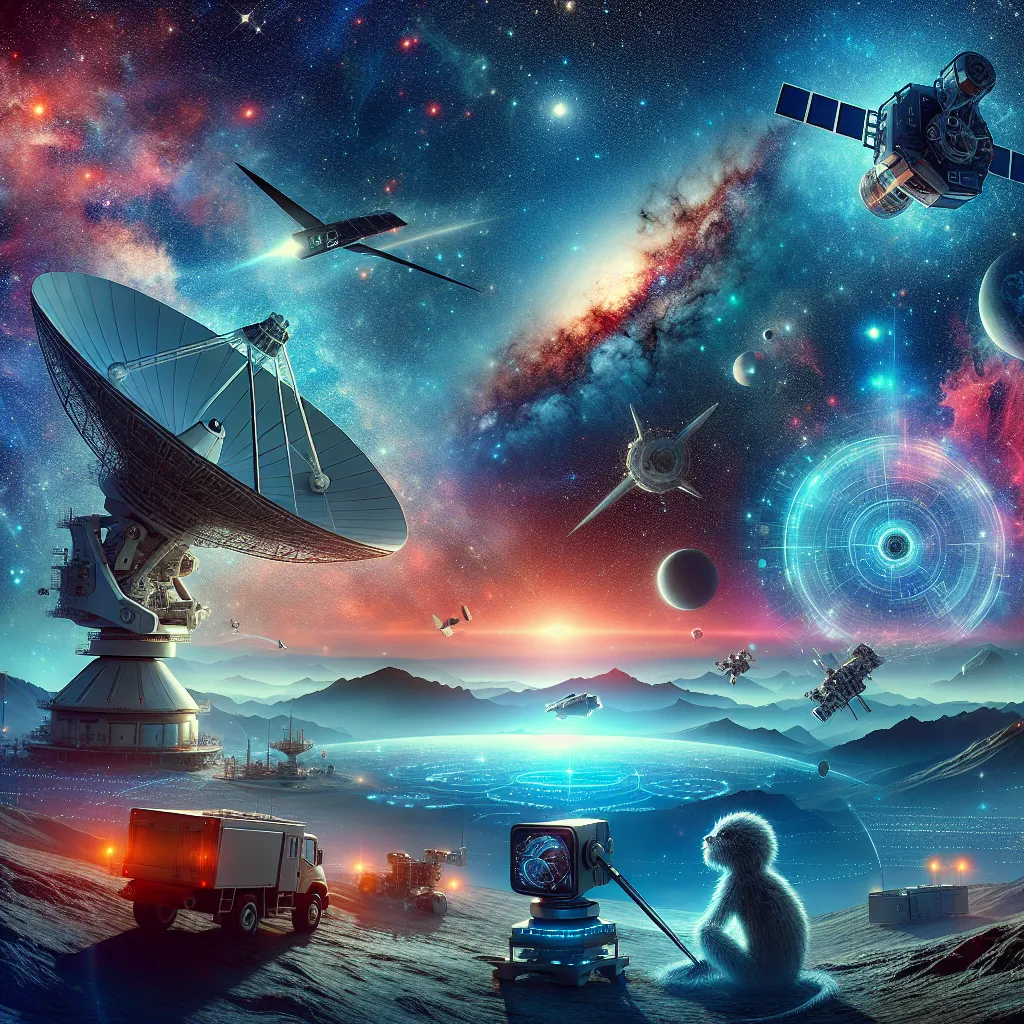1. The Enigma of Fast Radio Bursts
Fast Radio Bursts (FRBs) continue to be a tantalizing mystery in astrophysics. These millisecond-long flashes of radio waves, originating from galaxies billions of light-years away, were first discovered in 2007. The exact nature of these bursts remains elusive, but recent advancements in technology have allowed scientists to trace some FRBs back to their home galaxies, providing new insights into the cosmic environments that produce these enigmatic signals.
2. The Detection of Gravitational Waves
In a groundbreaking discovery, scientists detected gravitational waves for the first time in 2015. These ripples in space-time, predicted by Albert Einstein a century ago, were observed from the collision of two black holes, providing a brand new way to observe the universe. This significant achievement opens up new avenues for understanding the mysterious black holes and the fundamental laws of physics.
3. The Exoplanet Revolution
Space Tech has enabled us to detect more than 4,000 exoplanets - planets that orbit stars outside our solar system. Recent developments have led to the discovery of potentially habitable exoplanets, sparking exciting discussions about the possibility of extraterrestrial life. The launch of NASA’s James Webb Space Telescope in late 2021 will further enhance our ability to study these distant worlds.
4. The Puzzling Dark Matter
Despite being invisible and undetectable by current technologies, dark matter is believed to make up about 85% of the universe's mass. Its existence is inferred by its gravitational effects on visible matter, like stars and galaxies. While dark matter remains one of the greatest unsolved mysteries in cosmology, ongoing research and technological advancements bring us closer to unveiling its secrets.
5. The Hubble Ultra-Deep Field
The Hubble Ultra-Deep Field, an image captured by the Hubble Space Telescope, has revealed countless galaxies dating back to just a few hundred million years after the Big Bang. This feat, impossible without modern space tech, provides a unique opportunity to study the universe's early history and the formation of galaxies.
Conclusion
As technology continues to advance, so does our understanding of the cosmos. We are living in a golden age of discovery, where the mysteries of the universe are slowly but surely being unraveled. Whether it's the enigmatic fast radio bursts, the detection of gravitational waves, the discovery of exoplanets, the elusive nature of dark matter, or the historical snapshot of the Hubble Ultra-Deep Field, these space tech marvels continue to redefine our place in the cosmos. The universe, it seems, has only just begun to reveal its secrets.



